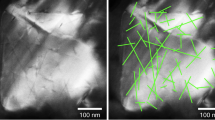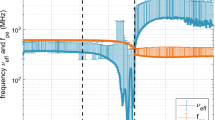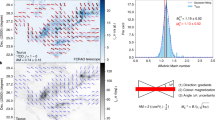Abstract
AN interplanetary dust particle experiment was flown on the OGO-I satellite launched in September 1964. The primary purpose of the experiment was to measure the speeds and directions of arrival of dust particles within 120,000 km of the Earth's surface, and thus determine the orbits of these particles. If sufficient orbits had been measured, the nature of the apparent dust cloud around the Earth1 could have been determined. Troubles were encountered with both the spacecraft and the experiment, however, and only three probable dust particle impacts were recorded. This communication briefly describes the instrument and the limited amount of results obtained.
This is a preview of subscription content, access via your institution
Access options
Subscribe to this journal
Receive 51 print issues and online access
$199.00 per year
only $3.90 per issue
Buy this article
- Purchase on Springer Link
- Instant access to full article PDF
Prices may be subject to local taxes which are calculated during checkout
Similar content being viewed by others
References
Whipple, F. L., Nature, 189, 127 (1961).
Alexander, W. M., McCracken, C. W., Secretan, L., and Berg, O. E., in Space Research III, edit. by Priester, W., 891 (Amsterdam, North-Holland Publishing Co., 1963).
Author information
Authors and Affiliations
Rights and permissions
About this article
Cite this article
NILSSON, C., ALEXANDER, W., McCRACKEN, C. et al. Measured Velocities of Interplanetary Dust Particles. Nature 208, 673–674 (1965). https://doi.org/10.1038/208673a0
Issue Date:
DOI: https://doi.org/10.1038/208673a0
Comments
By submitting a comment you agree to abide by our Terms and Community Guidelines. If you find something abusive or that does not comply with our terms or guidelines please flag it as inappropriate.



